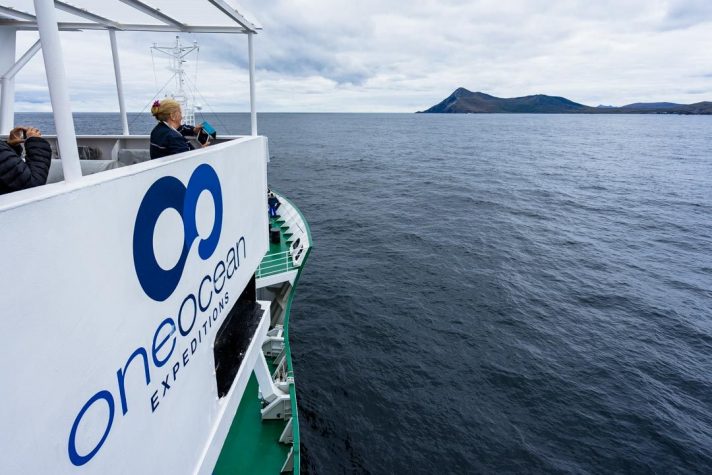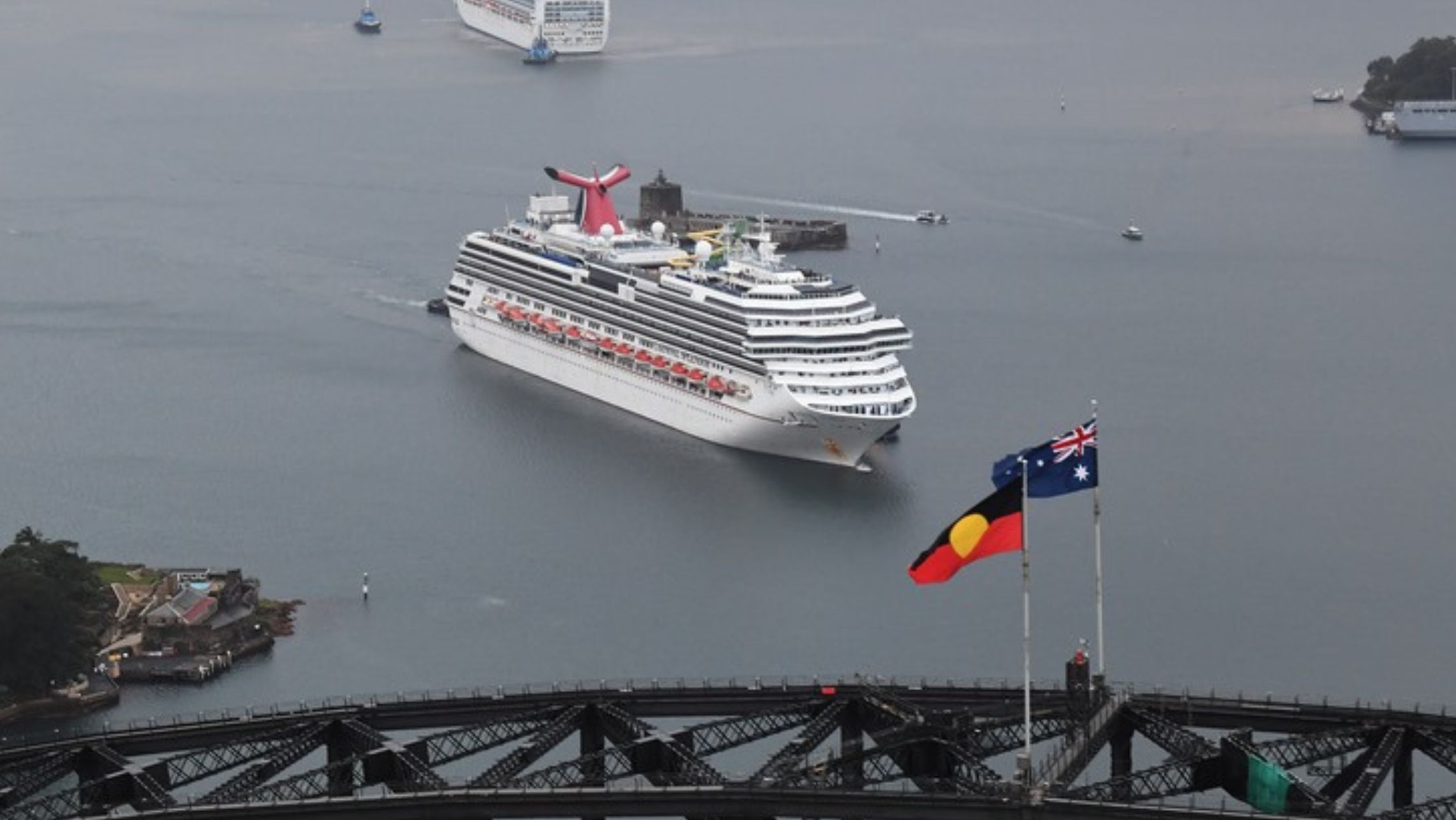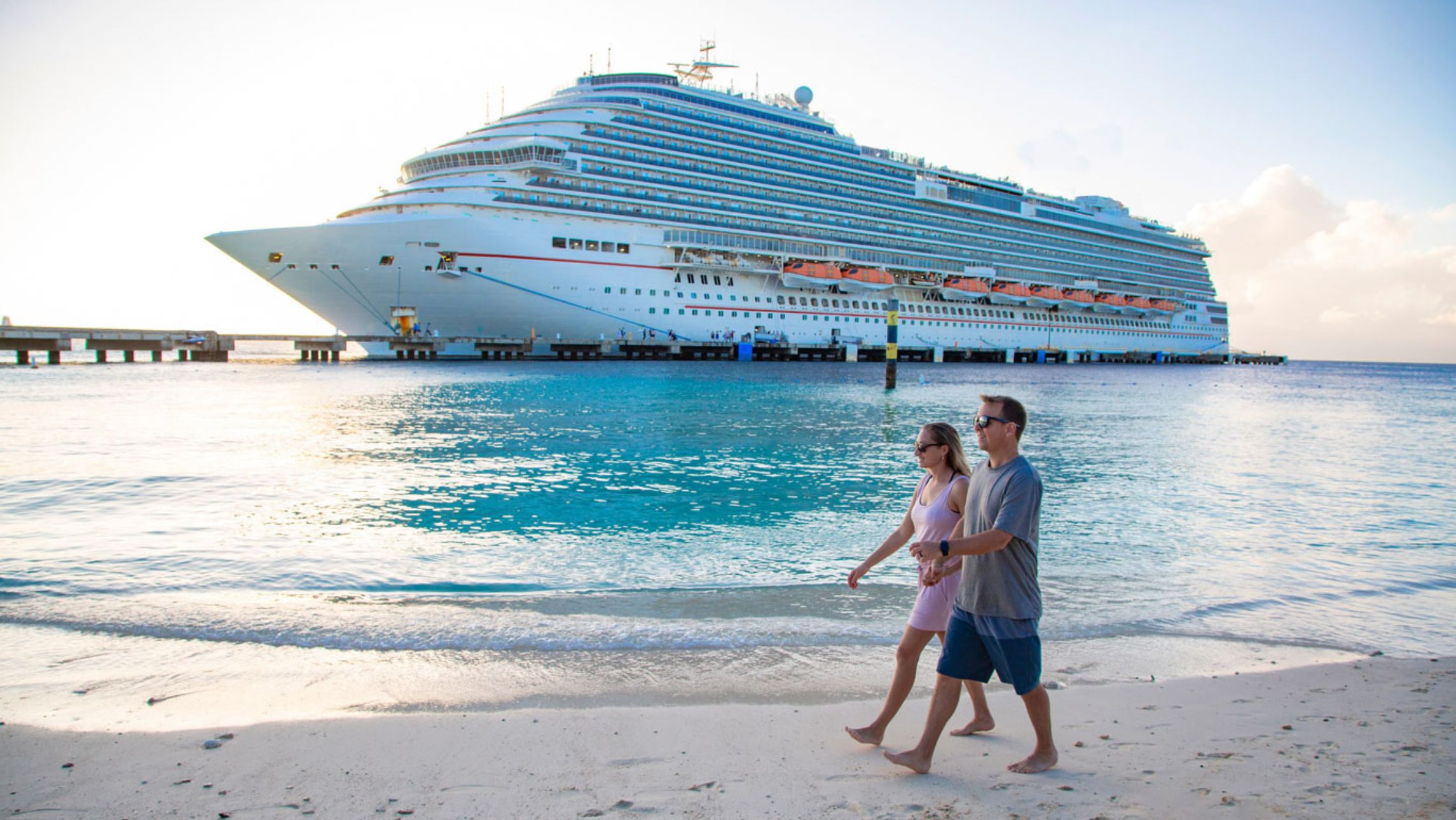Canadian cruise company One Ocean Expeditions first left passengers high and dry after cancelling numerous sailings – then offered customers a choice as to how they may be able to be “partially” reimbursed.
But the big question remains: why doesn’t travel insurance cover this kind of eventuality?
Canadian owned One Ocean Expeditions is known for its Arctic and Antarctica cruises, and charters Russian icebreakers to navigate the polar regions. On Tuesday this week, One Ocean Expeditions issued a letter to its pre-booked customers left with cancelled trips.

“One Ocean Expeditions has been working diligently to restructure the business in an effort to avoid entirely shutting down, so that we can continue to serve you, our valued partners and customers, and provide further options,” the statement read.
The company also advised it had signed a partnership agreement with a “qualified, reputable operator”.
“Under this agreement, we will be able to provide a range of alternatives for clients who have been affected by our difficulties.”
The three options offered by One Ocean Expeditions, according to the letter released are as follows:
Option A: Alternative sailings with a partner operator.
- As a passenger with a booking to travel with OOE, if you select to pursue this, you will be extended a special offer to travel aboard a range of alternative sailings.
- To pursue this option, you will be required to provide OOE with permission to pass on your contact details to its partner operator.
- This option is by far the best for customers wishing to proceed with their travel plans.
Option B: Potential refund of a portion of monies paid to OOE.
- One Ocean Expeditions will enter a formal process of business restructure in accordance with Canadian corporate law. This process will generally allow for all creditors to seek some form of payment for amounts owing to them.
- As a customer with OOE, you can elect to become a ‘creditor’ with the aim of receiving a refund of a portion of what was advanced.
- Further details will be provided if you select this option.
Option C: Pursue a travel insurance claim.
- As OOE will soon enter a formal restructuring process (business administration) under the Canadian legal system, you may be able to seek refunds through the cancellation terms of your travel insurance policy.
For passengers who do not select a preference by Friday 7th February 2020, they will automatically be placed on the list for a refund.
When the sailings were cancelled late last year, Cruise Passenger spoke with several Australian passengers who were left out of pocket, including one couple from Wollongong, Angela and Sal Capri. What was supposed to be a 60th birthday present for her husband and a trip of a lifetime for the couple, they instead found themselves out of pocket by more than $40,000.
When contacted today, Mrs Capri stated that they were going to pursue Option B and attempt to receive a partial refund. At this stage however, there has been no indication by OOE as to how much of a refund that partial payment may entail.
The reason the Capri’s haven’t contacted their travel insurer directly as the first port of call is because they say many travel insurers do not cover you if your claim involves the insolvency of a travel agency, transport, tour or accommodation provider.
For example, one of Australia’s biggest insurers, Allianz Insurance offers Comprehensive Insurance and will not pay your claim if caused by the financial collapse or insolvency of any travel agent, transport, tour or accommodation provider.
For a list of some of Australia’s other top travel insurer’s policies click here:
https://cruisepassenger.com.au/what-your-travel-insurance-doesnt-cover-youll-be-shocked/
So, what’s being done to address this gap in the travel insurance industry worth millions of dollars to businesses that leaves cruise passengers in such a vulnerable position?
According to Choice.com.au if your travel provider goes broke…
There are travel insurance policies that will cover “insolvency of a travel provider”. AIG, AussieTravelCover, Bupa, CGU, CHI, Defence Health, Go Insurance, Good2Go, Insure4Less, InsureandGo, RACV, Travel Insurance Saver, Travel Insuranz, TravelCard, Webjet and World2Cover say they cover this, but you’ll need to check the fine print in your policy.
If your insurer doesn’t cover a travel provider going broke, you’ve still got a right to ‘chargeback’ within the specified time frames.
Ask for a credit card chargeback
If you paid your holiday by credit or debit card (and you selected ‘credit’ when you paid), you can probably get your money back, but you need to act fast.
You can ask your bank for a chargeback. Your bank reverses a disputed transaction back to the merchant’s bank in accordance with card scheme rules set by Visa, MasterCard or American Express. This means the money goes back onto your credit card.
On behalf of the customer, the card issuer will seek a refund from the bank of the folded company.
While paying on EFTPOS may reduce or eliminate any fees you pay, it can compromise your safety net if the retailer you have purchased from goes under.
Time limits for chargeback apply and vary between financial institutions, so it’s important to contact your bank or credit union as soon as possible.
- National Australia Bank requires cardholders to notify the bank of chargeback circumstances no later than the due date shown on the statement of account.
- Teachers Credit Union Visa cardholders should contact the credit union within 45 days of the transaction.
- American Express cardholders should call Amex on the phone number on the back of their card no later than 120 days from the transaction date or expected date of receipt of goods. All chargebacks are considered on a case-by-case basis.
- MasterCard holders should contact their card issuer within 120 days of when the transaction was debited to the account.
- Visa cardholders have 120 days to initiate a chargeback and are advised to contact their card issuer as soon as possible.
- Diners Club cardholders should call customer service on 1300 360 060 and dispute the charge within two months of when the transaction was debited to the account.
Australian Federation of Travel Agents
The reply from AFTA on this matter was as follows: “This is not something within AFTA’s remit to comment on unfortunately so would suggest you reach out to the Insurance Council of Australia.”
The Insurance Council of Australia
When contacted for comment, a spokesperson for the Insurance Council of Australia replied they were unable to comment “due to our bushfire related workload.”







